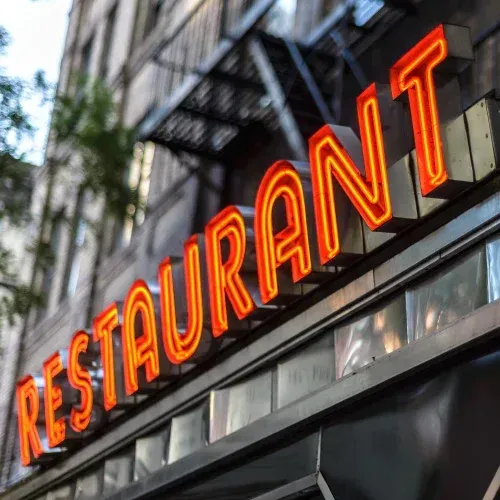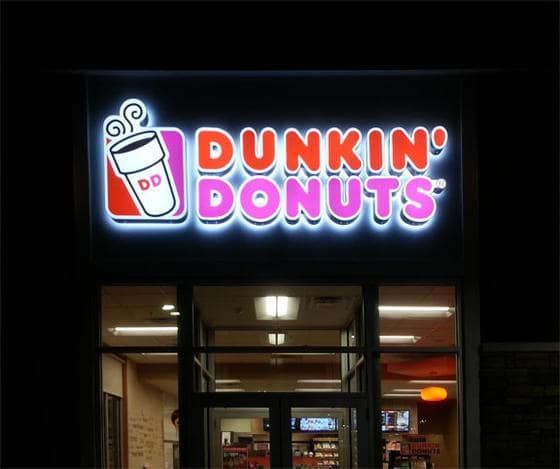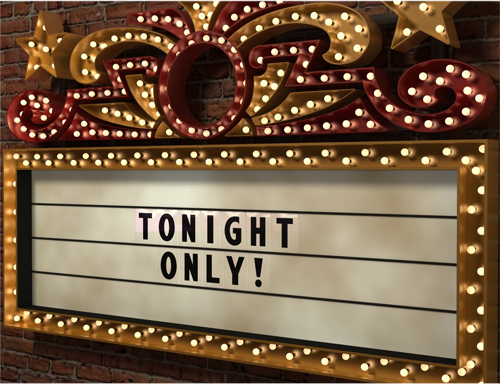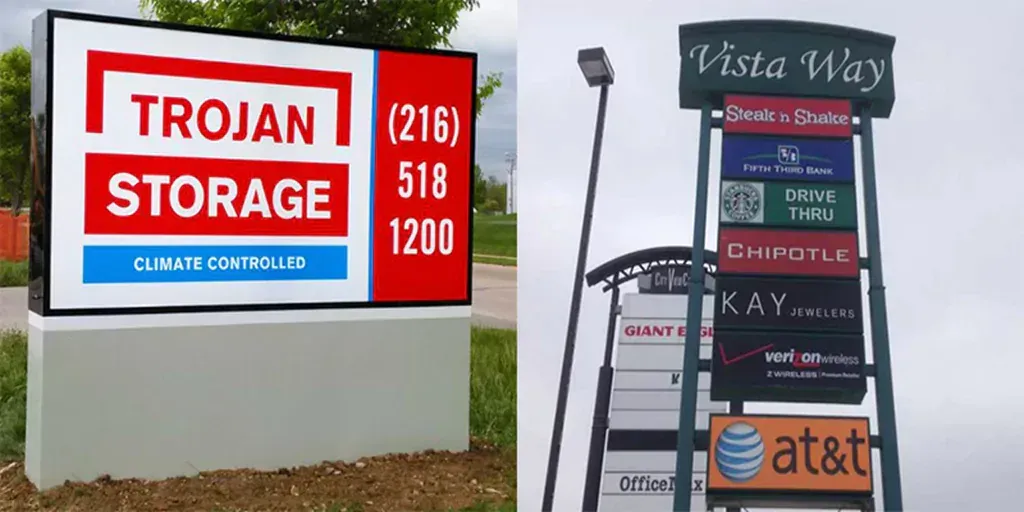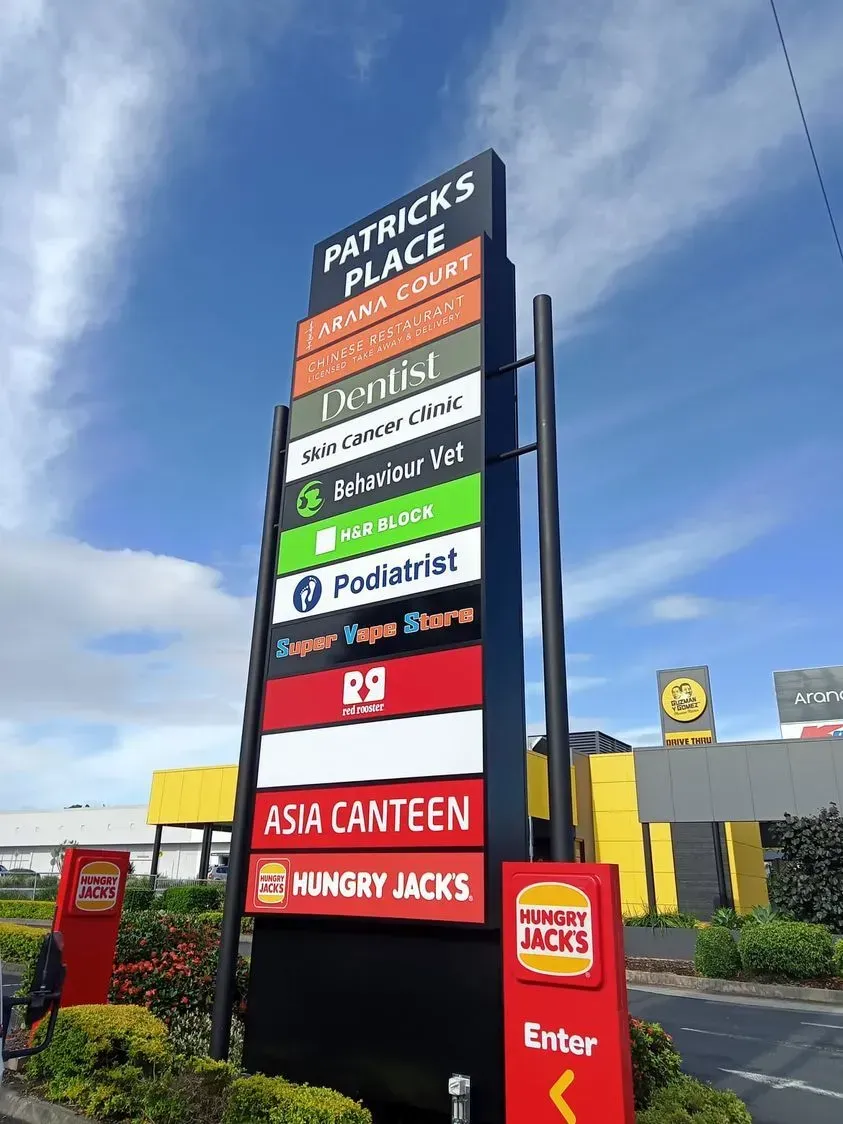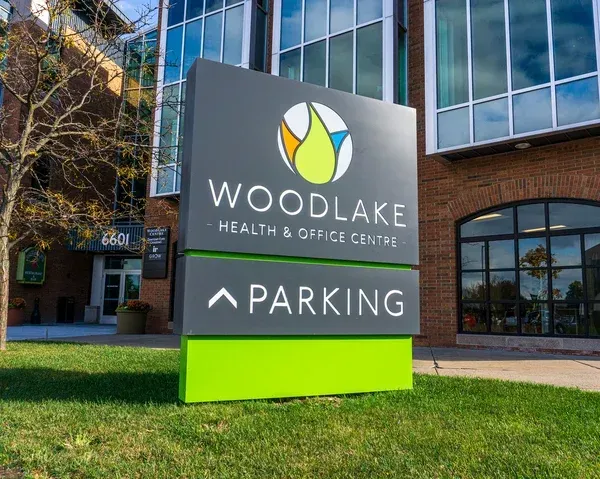Best Type of Wood for Outdoor Business Signs
TLDR;
Teak is the best type of wood for outdoor business signs due to its unmatched durability and natural weather resistance. Other great options include Redwood, Cedar, White Oak, and MDO Plywood—each offering unique strengths depending on your location, budget, and desired aesthetic.
Why Choosing the Right Wood for Your Outdoor Sign Matters
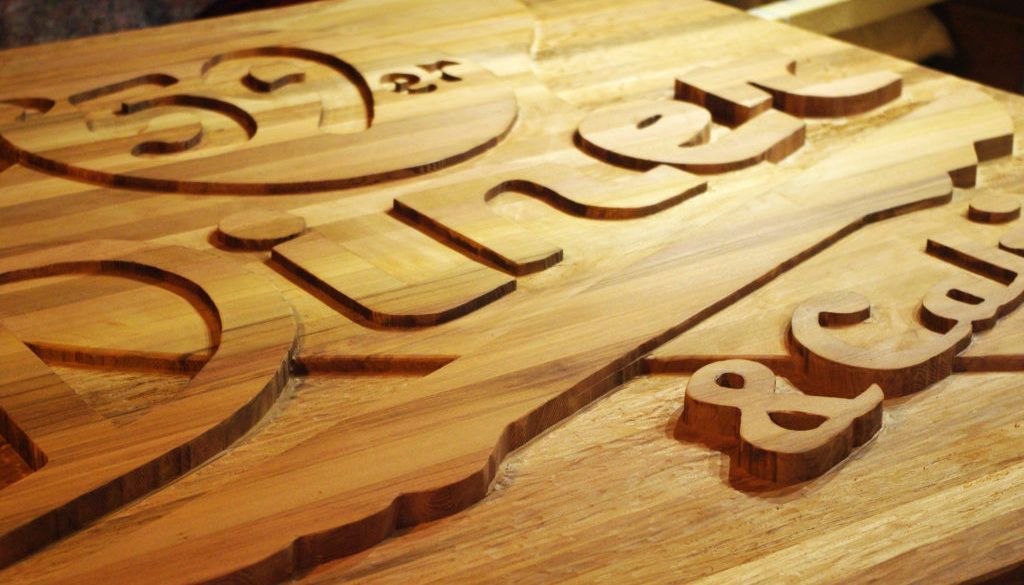
Your choice of wood isn’t just about looks—it affects how long your sign lasts, how much maintenance it needs, and how it represents your brand.
- Curb Appeal & First Impressions
Your sign is often the first thing people see. A high-quality wooden sign adds authenticity and trust to your business image.
- Branding Consistency with Materials
Rustic boutique? Sleek contemporary business? The wood you choose should match your brand personality.
- Wood Longevity & Maintenance
Some woods fight rot and pests naturally, others need sealing. Choose wrong, and you're stuck replacing your sign too soon.
- Outdoor Visibility & Durability
Sun, rain, wind, or snow—your sign has to survive it all without losing readability or color.
Key Factors to Consider Before Selecting Wood
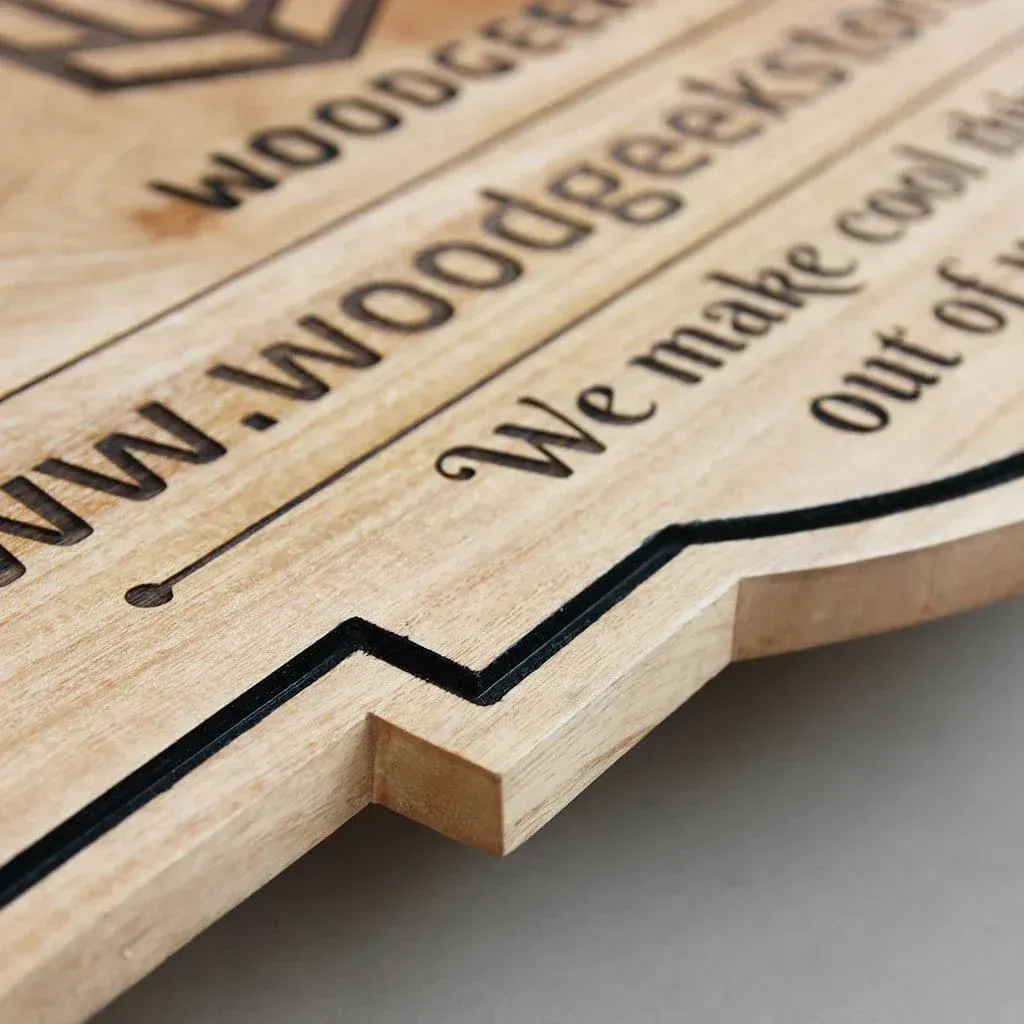
When picking wood for your sign, think beyond appearance. These factors directly affect the sign’s lifespan and performance.
Climate & Environment
- Humid/coastal: Choose rot-resistant species like
Teak or
Redwood
- Dry/arid:
Cedar and
MDO Plywood handle the heat
- Cold/freeze-thaw cycles:
White Oak performs best with proper sealing
Durability and Lifespan
- Is the wood
naturally resistant to insects and moisture?
- Does it
hold up well under UV exposure without cracking or fading?
- Some woods can last
decades outside—others, only a few years without upkeep.
Aesthetics and Finish
- Natural grain for a rustic look or smooth surface for paint?
- Color tones: Cedar has reddish hues; Teak is golden; Redwood rich and warm
- Is it compatible with
stains, paints, or sealants?
Budget vs. Longevity
- Cedar and
MDO are more budget-friendly
- Teak and
Redwood cost more but offer decades of service
| Wood Type | Upfront Cost | Average Lifespan | Maintenance |
|---|---|---|---|
| Teak | $$$ | 40+ years | Low |
| Redwood | $$ | 30+ years | Moderate |
| Cedar | $ | 20+ years | Moderate |
| White Oak | $$ | 25+ years (with sealant) | High |
| MDO Plywood | $ | 10–15 years | Moderate to High |
Workability and Installation
- Is the wood
easy to carve, route, or laser engrave?
- Can it be
mounted easily on various surfaces (brick, siding, metal)?
- Does it
hold finishes well without peeling or bubbling?
Best Wood Types for Outdoor Business Signs (Ranked & Compared)
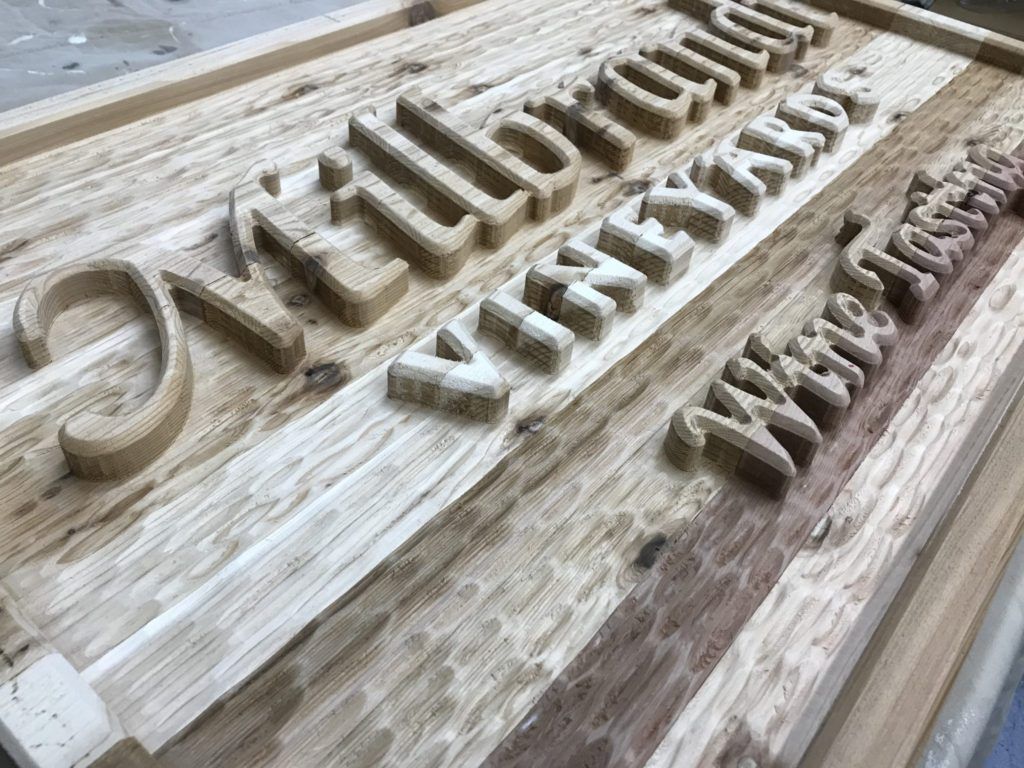
Here’s a breakdown of the top woods Horizon Sign and Lighting recommends for exterior signs, ranked by durability, cost-efficiency, and aesthetics.
Cedar
- Naturally rot and insect resistant
- Lightweight and easy to handle
- Takes stains and paint well
- Ideal for
eco-conscious brands or rustic aesthetics
Redwood
- High-end look with
rich, warm tones
- Strong resistance to
moisture and decay
- Better performance in
wet climates
- Slightly more costly, but requires less frequent sealing
Teak
- Top-tier choice for long-term outdoor exposure
- Contains
natural oils that repel water and pests
- Low-maintenance; doesn’t need frequent sealing
- Works well in
coastal or tropical zones or upscale storefronts
White Oak
- Very
strong and dense
- Looks
classic and traditional
- Needs
sealing to avoid water damage and gray patina
- Ideal for
colder climates with freeze-thaw cycles
MDO Plywood (Medium Density Overlay)
- Engineered wood, budget-friendly
- Smooth,
paint-ready surface
- Requires edge sealing to prevent water damage
- Commonly used in
real estate, events, or commercial settings
Climate-Based Recommendations for Outdoor Business Signs
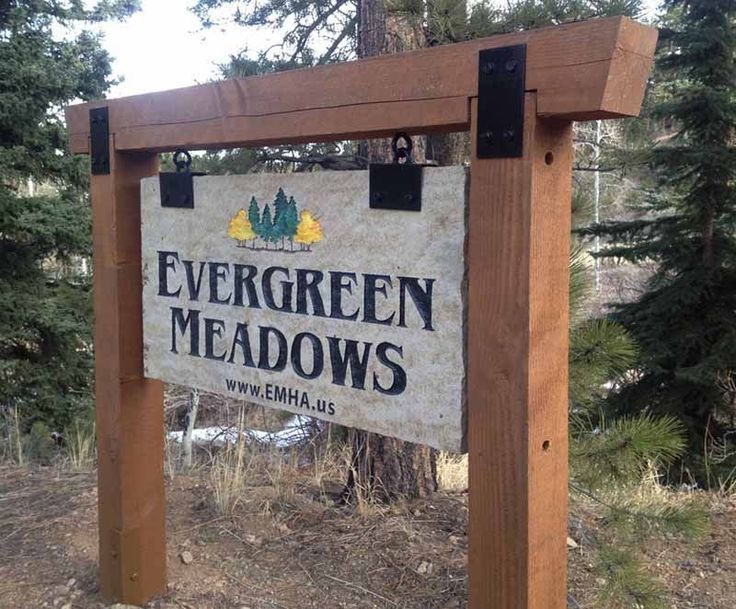
Not every wood works everywhere. Here’s how to match wood types with weather.
Humid & Coastal Regions
- Teak: Handles salt air, humidity, and rain like a pro
- Redwood: Stable in wet climates, resists fungal decay
Dry & Arid Zones
- Cedar: Holds up against UV, minimal cracking
- MDO Plywood: Painted surfaces fare well in low humidity
Freeze-Thaw Zones
- White Oak with sealant: Prevents cracking from expansion/contraction cycles
- Teak: High oil content makes it stable despite temperature shifts
How to Maintain Your Outdoor Wooden Business Sign
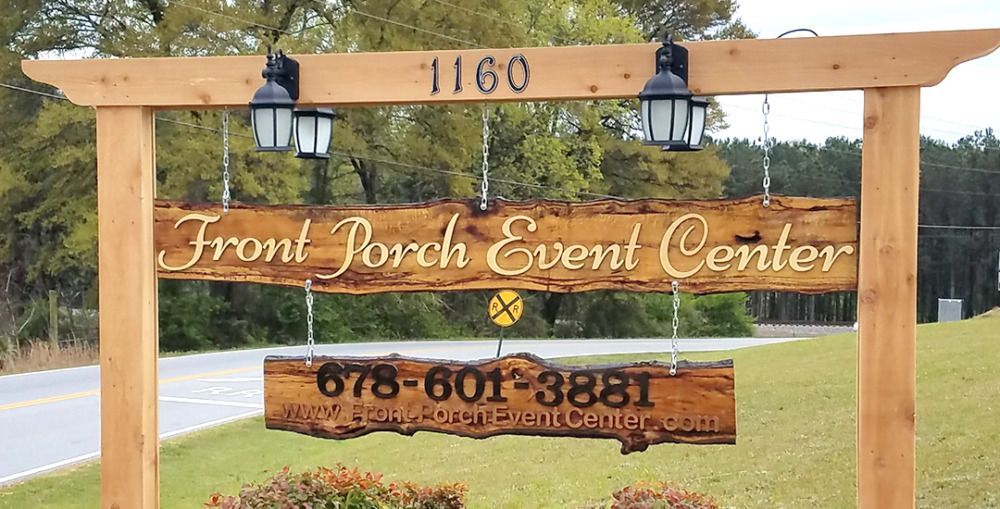
Even the best wood needs proper care. Protect your investment with regular upkeep.
Cleaning & Care
- Wash with
mild soap and water every few months
- Inspect for
mold, cracks, or fading
Protective Finishes
- Use
clear sealants for a natural look
- Use
pigmented sealants or paints to add color and UV protection
- Reapply every
2–3 years, depending on exposure
Seasonal Maintenance Tips
- Add a
fresh coat of sealant before winter or rainy seasons
- Consider
shade or awning installations for sun-drenched signs
Sustainability and Eco-Friendly Signage Choices

Choosing the right wood is also about environmental impact. Horizon Sign and Lighting supports responsible sourcing.
- FSC-Certified Options: Cedar, Redwood, Teak all have certified sustainable versions
- Reclaimed Wood: Eco-friendly and rustic, but may need extra prep
- Low-VOC Finishes: Use sealants and paints that are safer for people and the planet
Cost Comparison of Outdoor Sign Woods
Here’s how different options stack up when it comes to pricing, aesthetics, and maintenance.
| Wood Type | Price/Sq Ft | Lifespan | Maintenance | Aesthetic Appeal |
|---|---|---|---|---|
| Cedar | $5–$7 | 20+ years | Moderate | Rustic/Classic |
| Redwood | $7–$10 | 30+ years | Moderate | Premium Natural |
| Teak | $15–$25 | 40+ years | Low | Luxurious |
| White Oak | $8–$12 | 25+ years | High | Traditional |
| MDO Plywood | $4–$6 | 10–15 years | High | Painted/Flat |
FAQs About Outdoor Wooden Business Signs
What is the most weatherproof wood for signs?
thanks to its natural oil content and dense grain.
How long does cedar last outside?
With proper maintenance, up to 20–25 years.
Is MDO better than real wood?
For painted, short- to mid-term signs, yes. But it doesn't last as long as solid woods like teak or redwood.
Can I use untreated wood for signs?
Not recommended. Untreated wood will warp, rot, or crack quickly when exposed to the elements.
Expert Guidance from Horizon Sign and Lighting
So, what’s the best type of wood for outdoor business signs?
- Choose
Teak if you want low-maintenance and decades of durability
- Pick
Cedar for a balance of cost, beauty, and performance
- Go with
Redwood for stability in wet areas
- Use
White Oak in cold climates—but seal it
- Try
MDO for cost-effective, painted commercial signs
